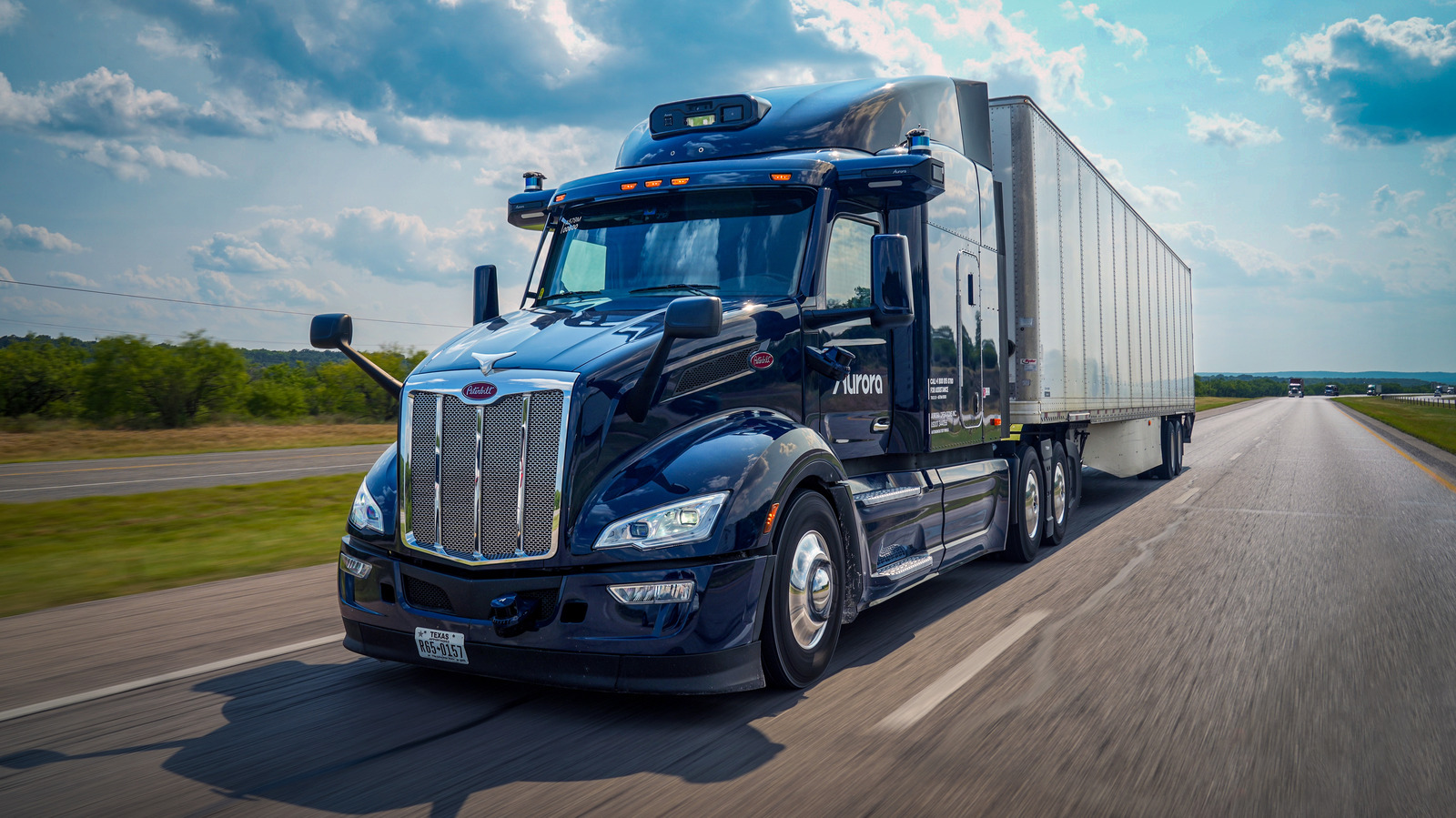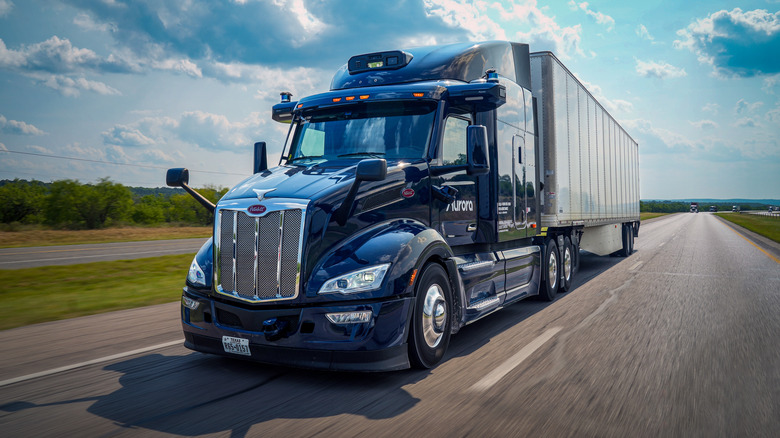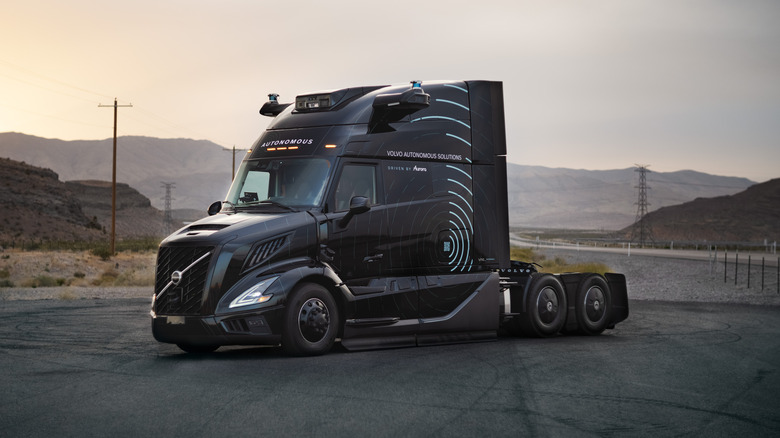Self-driving cars have been seemingly only a year away for the last decade. Elon Musk promised to launch Tesla’s Robotaxi service in Austin next month, but self-driving history has already been made in Texas. Aurora Innovation began regular driverless customer deliveries along Interstate 45 between Dallas and Houston last month, becoming the first self-driving commercial trucking service. The immediate concern is the potential to render the country’s 3.5 million truckers jobless, but the idea of an 80,000-pound driverless driver on the road isn’t comforting to the general public.
The Aurora Driver, the Pittsburgh-based company’s flagship product, is an L4 autonomous driver system that can be installed onto a variety of trucks to allow around-the-clock operation. Unlike humans, these trucks don’t have an 11-hour maximum drive time. They don’t have to sleep or rest, cruising non-stop until they reach their destination. While the company touts the fuel efficiency gains from removing the human element, lacking a paid driver would make operations more profitable. Truck driver Justin Martin told More Perfect Union:
“What they really should be saying is we’re going to run the freight for a lot cheaper than it would be to have a mean in the seat driver.”
Aurora is coming for the few jobs that truckers want.
Aurora claims that it’s addressing a driver shortage. Chris Urmson, the company’s co-founder and CEO, told the New York Times, “It is a noble job. That said, people don’t particularly want to do it anymore.” However, the most desirable jobs are likely the ones that will be fully automated first. There are waiting lists for line haul jobs that move freight between motor carrier terminals along highways, but the Aurora Driver is best-suited for highway driving. Despite Aurora only operating along the previously mentioned I-45 corridor, the company is set on expanding across the Southeast and Southwest. Humans would be relegated to less-desirable first and last-mile operations.
From a safety standpoint, Aurora isn’t recklessly throwing unproven technologies on the road. The company logged three million autonomous miles delivering customer loads during a supervised pilot program that lasted over four years. However, the company returned a supervisor to the driver’s seat last week after a request from PACCAR, the manufacturer of its trucks. Aurora stated that its partner was concerned about “certain prototype parts in their base vehicle platform.” The company hopes to expand its modest two-truck operation to 20 by the end of the year. Who knows what’s next after that?




